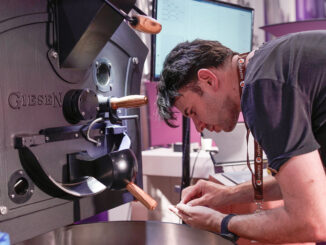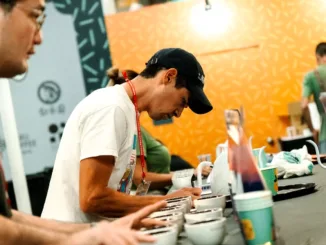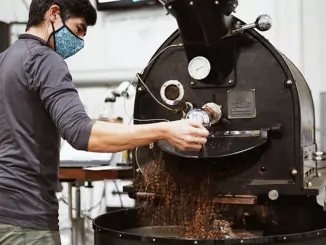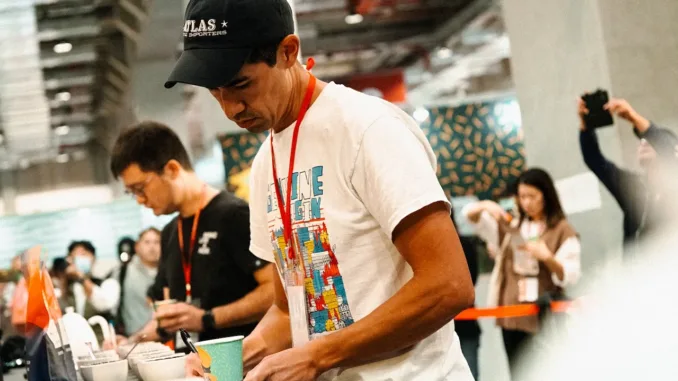
We finish our conversation with the U.S. roasting champ who recently placed third at the World Coffee Roasting Championship in Taiwan.
Photos courtesy of World Coffee Events
Andrew Coe spent this summer relocating from Portland, Ore., to St. George, Utah, as we discussed in the first part of our interview with him on Friday. While adjusting to his new city and keeping his Portland-based company Elevator Coffee Co. going, he also found time to prepare for the World Coffee Roasting Championship, from roasting practice coffee to familiarizing himself with the scoresheets.
The hard work paid off, as Andrew placed third at the world’s event, which took place last month in Taiwan. In the final part of our interview with Andrew, he discusses some of the challenges of the competition, how he and his team have kept Elevator going without him in Portland, and much more.
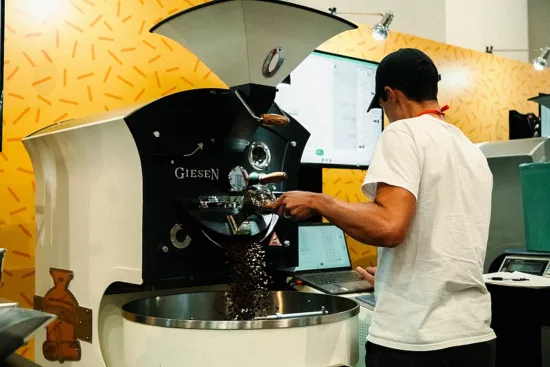
Barista Magazine: On the fourth and final day of the World Coffee Roasting Championship, the competitors took part in a large cupping to taste each others’ coffees. What was the cupping like?
Andrew Coe: The cupping was one of the most fun parts for me because, from the competitor’s standpoint, all the work had been done. The scores had already been scored. And so there was just a level of ease around that whole space. The competitors felt much more relaxed and people were chatting.
What was interesting was I had seen all these different roasting approaches when I was standing around and watching, and even so, the coffees on the table tasted great because these are all national champion roasters. Everybody knows what they’re doing. So it was fun to just be like, these coffees taste good, but this one really got the right floral aspects of this coffee, and this one has this amazingly sweet finish, and this one has all the fruit that you could want. So just seeing how different competitors brought out those different aspects of each coffee was great.
Before your third-place finish at this event, no U.S. competitor had ever placed in the top six at the World Coffee Roasting Championship. Do you have a sense of why this has been a tough competition for U.S. roasters?
I think for a lot of competitors that have a full-time roasting job and then also compete on top of that, it can be hard. Worlds is both a huge time commitment to do preparation for, and the machines they give you are unusual. So if you want to carve out practice time and you don’t have a Giesen six-kilo or a Stronghold S7 sitting around your roastery, it’s kind of on you to seek out opportunities to roast on those things and get really familiar with them.
Part of the I guess fortunate thing for me moving was I was out of the day-to-day stream of my roastery’s workflow, and I had time beyond managing our business to travel and practice roasting on a Giesen, and buy a bunch of extra coffees out of my own pocket to practice on over the summer. But it’s not cheap, and even just traveling to Worlds, that’s a large undertaking if you don’t have sponsors that are paying for your flight to Taipei or your hotels. (The roaster manufacturer Aillio sponsored Andrew for this event.) I felt like I had a ton of support, both from my team at Elevator allowing me to do this, and past champions and other roasters offering me advice, offering me time to roast, and giving me roast ideas. But it’s hard, and it’s a lot of work.
I think, now that I placed third, I’m hopeful that maybe I can help other people even just believe that U.S. competitors could win this.
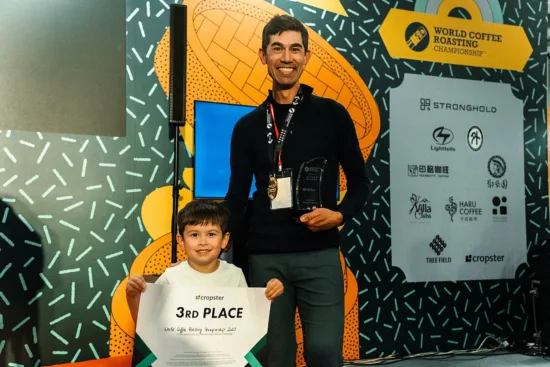
You’ve talked in past interviews about your experience as a competitive runner and cyclist, and how that may help you in competition. Can you explain?
I feel that because I’ve competed in so many different things, ever since high school, I have a calm, focused competition demeanor. Even under high-pressure situations, I feel that I do a good job of managing stress and limiting making mistakes. Part of competitions is getting lucky, but part of competitions is not making big mistakes. So it’s not all just about being the “best roaster.” Some of it is temperament, some of it is luck, and some of it is just how the competition turns out.
What did it feel like for you to place third in this Worlds event?
I think generally, I’ve always thought that I’ve been an OK cupper, but I’ve not always felt super calibrated to other coffee professionals. And I don’t know if that’s just an experience thing that comes with time, but I came away from this feeling like, especially after tasting the coffees on the table and then seeing what the judges’ comments were, that I was very well aligned with the judges’ assessment. And I felt that that was true at the U.S. competition too. And so I guess personally I just feel a level of confidence around that calibration of connecting flavor in an accurate way that other professionals understand. That’s a huge thing for me to feel like, OK, I do kind of know how to talk about coffee in a way that makes sense to other coffee people.
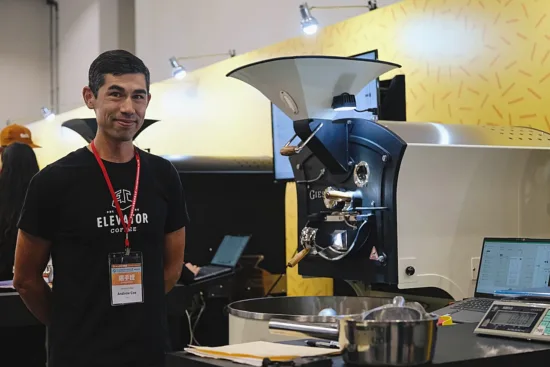
What kind of effect has this additional exposure from competitions impacted your company, Elevator Coffee?
Any competition on this scale absolutely brings more exposure, especially if you’re a small business. And not that that doesn’t come without challenges. I absolutely love that Elevator is doing really well, and that we’ve grown a ton this year. But it’s been kind of hard to do that remotely. My team has done amazing things without me there, and I’m just so grateful for how much work they’ve put in. They’ve definitely been running the ship. I really didn’t know how that would go, and it’s gone better than I could have hoped.
Subscribe and More!
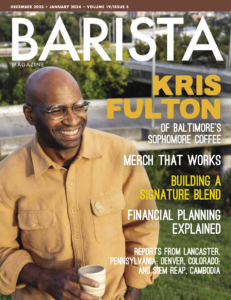
Out now: It’s the December 2023 + January 2024 issue! Read it for free with our digital edition. And for more than three years’ worth of issues, visit our digital edition archives here.
You can order a hard copy of the magazine through our online store here, or start a subscription for one year or two.


